“It is better to fail aiming high than to succeed aiming low. At Spurs we set our sights very high, so that even failure will have in it an echo of glory.”
– legendary Spurs manager, Bill Nicholson
In football, managers are most often judged by results and trophies – a very simple definition of what it means to be “successful.”
There’s a reason the reputation of managers like Sir Alex Ferguson and Pep Guardiola precedes them. They are proven, serial winners at the highest level – Ferguson with 49 major trophies and Guardiola with 36 (and counting).
At the core of what competitive football is, who can argue against this definition of success? No one wants to play for or support a club that never wins. At the end of the day, objective success is what keeps the lights on at the facilities, the players motivated, and the fans happy.
As I would like to describe it, this is the “what” and the “why” of football.
While these two pillars of sport and leadership are indispensable, there’s a third pillar which often gets strewn aside amongst the hustle and bustle of the way we (as a culture) define success – the “how.”
Not simply what you aim to achieve and the reasons you set those goals in the first place, but the path you take to get there. For a football manager, this means the style of play you impart on your squad, the methodologies you (and your entire staff) practice, and the manner in which you conduct yourself, both in good and bad moments.
Overall, the ethos and culture through which you operate and craft, day in, day out.
As much as objective success defines a manager’s stint at the helm, it’s worth remembering: not every club can win the league, not every club can qualify for the Champions League, and not every club can stave off relegation. While these goals are steadfast markers of achievement, to hold every club – simultaneously – to the same standard results in more failure than it does success.
When this failure inevitably comes, what is left inside the empty shell of insufficiency?
Few contemporary Premier League clubs know the answer to that question quite as well as Tottenham Hotspur.
Not to rub salt in the wound, but they have only won one trophy since the turn of the century – beating Chelsea in the League Cup Final back in 2008.
Since that point, they have finished as runners-up in the League Cup three times (2009, 2015, 2021), Top 4 in the league seven times (including finishing as runners-up to Chelsea in the 2016/17 season), and the cherry on top, runners-up in the Champions League in the 2018/19 season (losing 2-0 to Liverpool after a storybook path to the final).
Safe to say, Spurs fans have had their fair share of pain in recent times.
As much as one could look at just how close Spurs have come to glory and describe it as a form of success, most football fans would look at their absence of silverware and scoff at the notion.
Throughout this recent run of near-success, their brightest moments came with Mauricio Pochettino as manager – an era that gave rise to names like Christian Eriksen, Harry Kane, Dele Alli, and Heung-min Son.
The Argentine boss, currently residing at Chelsea, oversaw the club from July of 2014 through November of 2019 – the longest managerial stint at Spurs since Bill Nicholson resigned in August of 1974.
When we look at the “why” of Pochettino’s managerial approach, his style of football prioritizes high-tempo positional actions, combined with purposeful possession. Over the course of the five full seasons he managed at Spurs, the club averaged just over 59% possession in the Premier League.
What’s most perplexing, from a removed position, is how and why Spurs transitioned from Pochettino to infamous personality José Mourinho.
A polarizing manager, Mourinho’s managerial approach is quite the opposite of Pochettino’s – often labelled as “anti-football.” Mourinho is well known for his ultra-pragmatic ideas of ceding possession and pouncing on mistakes from the opposition.
"Many people believe that the team with more possession is the team that is more dominant. But that depends on the way you look at it; a team without the ball can still be in control of the game.”
– José Mourinho
Seemingly, the thought behind Mourinho’s appointment was to bring in a manager with a pedigree of success, who could build upon the foundations Pochettino had crafted and finally deliver silverware back to the white and navy side of North London.
Leaving behind the adventurous brand of football Pochettino offered for a more pragmatic (and generally less entertaining) approach, Spurs compromised a certain ethos in the aim of success.
Yet, that success never came.
In the four seasons since Pochettino’s departure, Spurs finished 6th, 7th, 4th, and 8th in the league.
Hand in hand, Spurs fans grew disillusioned with their club’s identity – not only were they not achieving the desired results, but the brand of football they watched week-in, week-out was an empty shell compared to the Pochettino era.
Throughout this period, their possession dropped to an average of just over 51% in the league. Now, possession isn’t everything in football – you can concede a majority of possession and still play an entertaining brand of football – yet, in the case of Spurs, this disparity is a sign of larger issues at play.
With an overeagerness to excel, manager turnover only became more intense. Without a consistent figure at the helm, the ethos of the Pochettino era slowly faded from existence.
In the wake of such change, some Spurs fans began to question the values their club truly stood for.
From Mourinho to Nuno Espírito Santo to Antonio Conte, Spurs have most recently been a club lacking a strong sense of stability, culture, and ethos.
Enter, Ange Postecoglou.
For those who are unaware of the man or his background, Angelos Postecoglou is a 58-year-old Greek-Australian manager; endearingly known as “Big Ange” by many, thanks to his husky figure and commanding personality.
Ange began his managerial career in Australia, with his big break coming at A-League side Brisbane Roar in 2009, where he led the club to two league championships.
From there, he moved to fellow A-League side Melbourne Victory in 2012, before becoming the manager of the Australian Men’s National Team in 2013. Under Ange, the Socceroos won the Asian Cup, in 2015. However, after a rough, turmoil-filled period in 2016 and into 2017, he resigned.
Several months later, in February of 2018, Ange undertook his first position abroad – becoming manager of J1 League side Yokohama F. Marinos in Japan, where he won one league championship.
He managed there for two-and-a-half seasons, before his next big break came – becoming the manager of Scottish powerhouse Celtic in June of 2021.
In his two seasons at Celtic, after the club had been dethroned by bitter rivals Rangers in the 2020/21 season, Ange and The Bhoys reclaimed their spot at the top of Scottish football in extraordinary fashion – winning the league title and the Scottish League Cup in 2021/22, followed by a domestic treble last season, all while playing a possession-based, attacking brand of football.
Ange’s introduction to British football was a smashing success – in all senses of the word. So much so, that after winning five domestic titles in two years on the job, Daniel Levy and Tottenham Hotspur came calling.
Just six games into the 2023/24 Premier League season, it seems Spurs finally have a manager to remedy the atmosphere of mediocrity which has clouded the club for so long.
After losing world class striker Harry Kane to Bayern Munich in early August, many worried how Ange and Spurs would cope.
Yet, for as much as they lost, they have gained even more.
In the short three months Ange has been at the helm, his imprint is already unmistakable.
From an ethos of candor, discipline, and humor off the pitch to a fresh, forward-thinking, and attack-minded playstyle on the pitch, Ange Postecoglou has very quickly reshaped Spurs into an overwhelmingly positive football club.
On the former, one of the most impressive aspects of Ange’s start to life in the Premier League has been his ability to speak on issues that many others – both in and out of football – often shy away from.
After Spurs and Brazilian striker Richarlison publicly opened up about seeking psychological help, Ange spent about a quarter of his following press conference speaking on balancing the highs and lows of being a human being.
“Whatever [Richarlison] needs, we’ll help him get to the space where he wants to… we’ll give him the support he needs… What I will say is: no person has a perfect life… I’m sure every player in our dressing room is dealing with something… It’s about keeping a perspective, keeping a balance... I think we do understand [mental health], but we choose to ignore it.”
– Ange Postecoglou (September 15, 2023)
In the following game, as storybook as you could write it, it was Richarlison who scored and assisted two late goals to lift Spurs to a 2-1 win over Sheffield United – the latest comeback win in Premier League history.
To be frank, as someone who follows the Premier League ever so closely and has had their fair share of battles with mental health in the past, seeing a figure like Ange take the time to address the topic – then to have that message resonate so deeply with the men on the pitch – is incredibly refreshing.
So often, it feels like managers get so caught up in the busyness of the occupation (as many of us do with aspects of our lives) they lose touch with what’s most important. It goes hand in hand with the general hyper-fixation on “success” in football; a modern tendency to operate football clubs in as mechanical and efficient a manner as possible.
Some managers simply believe there’s not enough time for these conversations at the highest level in football – and that’s an issue. It’s an attitude that only perpetuates the underlying issues we all deal with, rather than facing them head-on.
Ange once again displayed this aptitude for patience and acceptance at a Q&A session held by the club last week.
As the event moderator began their closing remarks, Ange butted in, making sure one fan in particular got the chance to ask his question. That person was a young man named Owen, who has Down Syndrome.
In a moment where many people would follow convention and allow the event to conclude – even if the thought of offering this young man the platform to speak crossed their mind – Ange made sure to do what he felt was right.
After the conclusion of the Q&A, he even took the time to take pictures and have a quick chat with Owen.
These two moments display just the type of person Ange Postecoglou is.
On the pitch, Ange’s impact is just as noticeable.
Six games into the Premier League season, Spurs are one of four unbeaten sides and sit 4th in the table, all while averaging 2.5 goals and 59.3% possession per game. Not only that, they are the most efficient team at getting the ball into the box – with over 15% of their possessions entering the opposition penalty area.
Once again, Spurs fans can invest in an exhilarating brand of football.
No game encapsulates this quite like Spurs’ 2-2 draw in this past weekend’s North London Derby. Travelling away as underdogs to bitter rivals Arsenal, Ange and Spurs held steady in their approach.
While many other teams shy away from the ball against a potent, possession-based side in Arsenal, Spurs embraced the challenge. In doing so, they bettered Arsenal for possession (with 56%) and big chances (with 4), while equaling them for total shots and shots in the box.
At two different times, Spurs found themselves a goal down to the Gunners. Yet, in both moments, as one could only expect from a team led by a manager who preaches determination and discipline, they found a way to equalize.
At this point, it’s safe to say: Spurs are in very good hands.
After what has felt like an eternity of being in a state of football purgatory, Tottenham Hotspur have rediscovered their core footballing identity.
From the Pochettino era through the dark days of Mourinho, Espírito Santo, and Conte, Tottenham Hotspur have emerged like a phoenix (or cockerel) from the ashes.
Hopefully in five- or ten-years’ time, we can label this the “Postecoglou era.”
Looking back at the heyday of White Hart Lane, Ange Postecoglou is fostering an approach to football reminiscent of the late, great Bill Nicholson – a bold, adventurous, and unforgiving approach.
Dare I say, a romantic approach.
Like the quote shared at the beginning of this piece, if Ange “fails,” he will do so with his sights set at the very top.
While Spurs are by no means guaranteed a trophy or a Top 4 finish this season, Ange’s introduction to the Premier League is a stark example why “success” cannot be defined solely by the trophies you win, but also by the steps you take to get there.
Thanks for reading! If you enjoyed, please consider sharing with a friend and/or subscribing with the button below. You can either subscribe for free or with an optional paid subscription, which supports my ability to consistently produce content, both on Substack and on X.

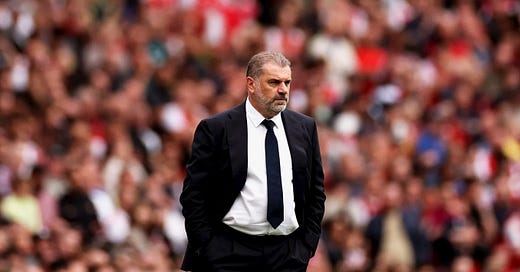



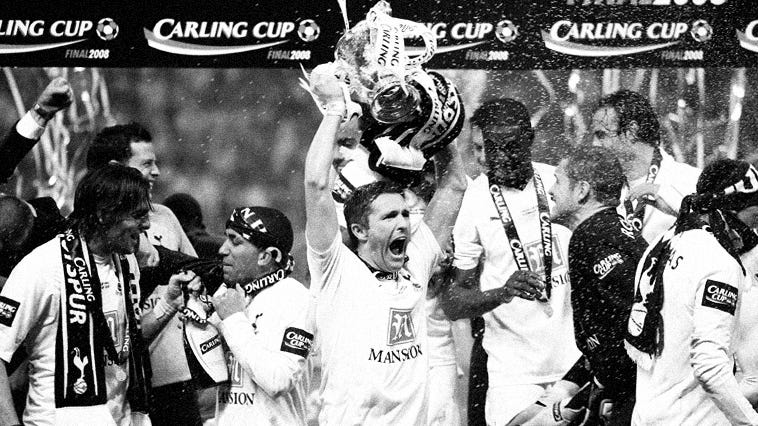

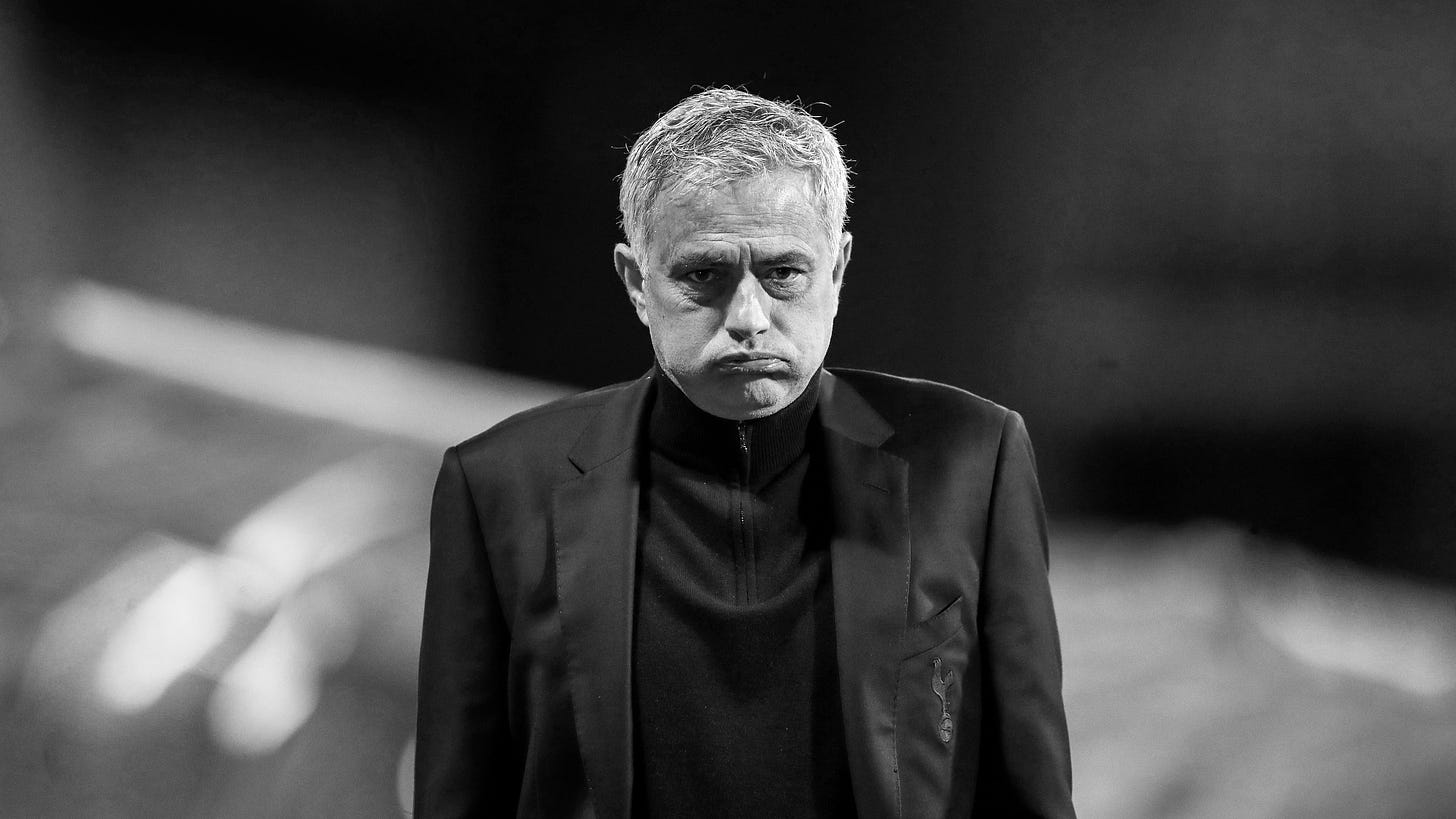
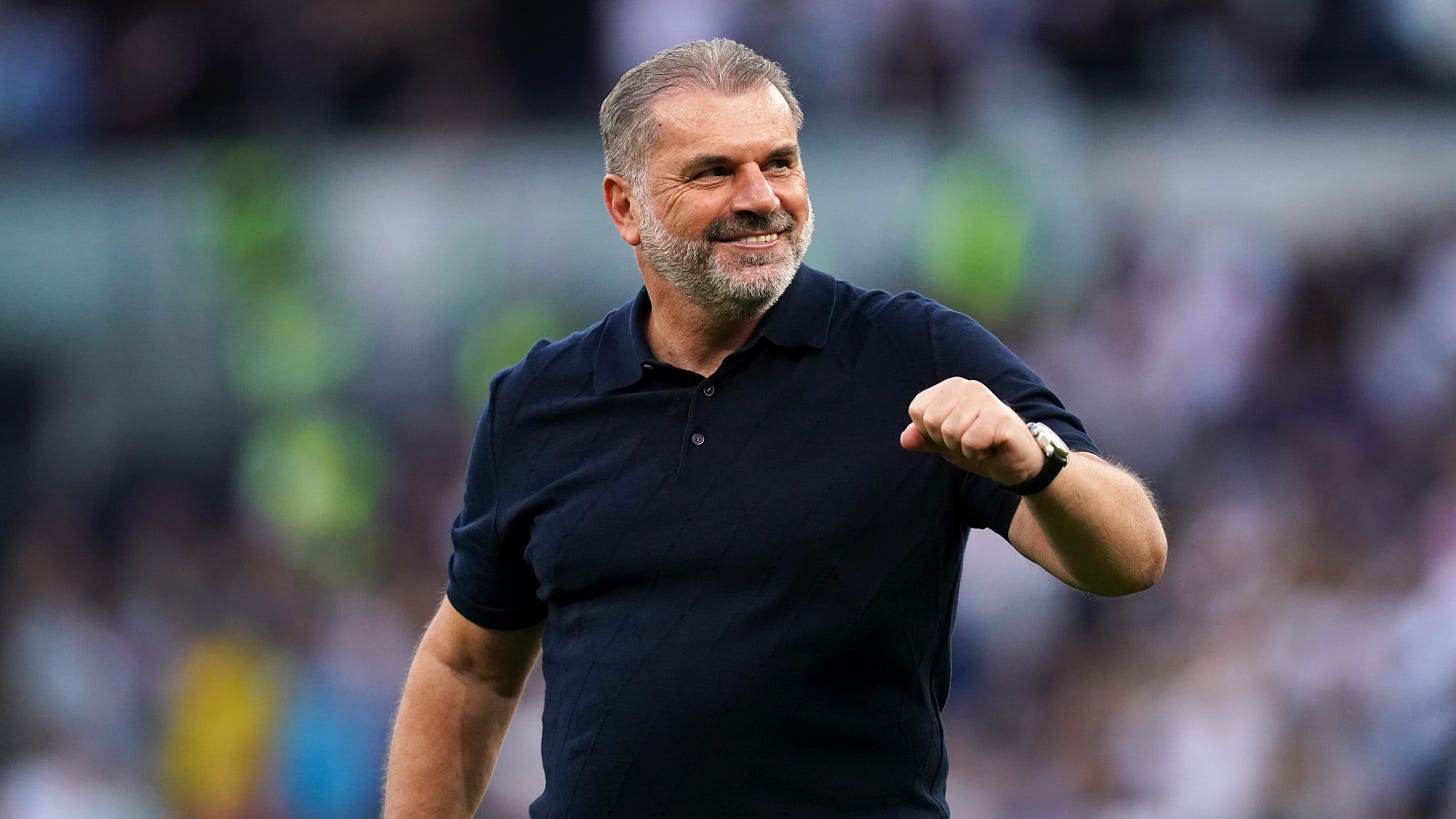

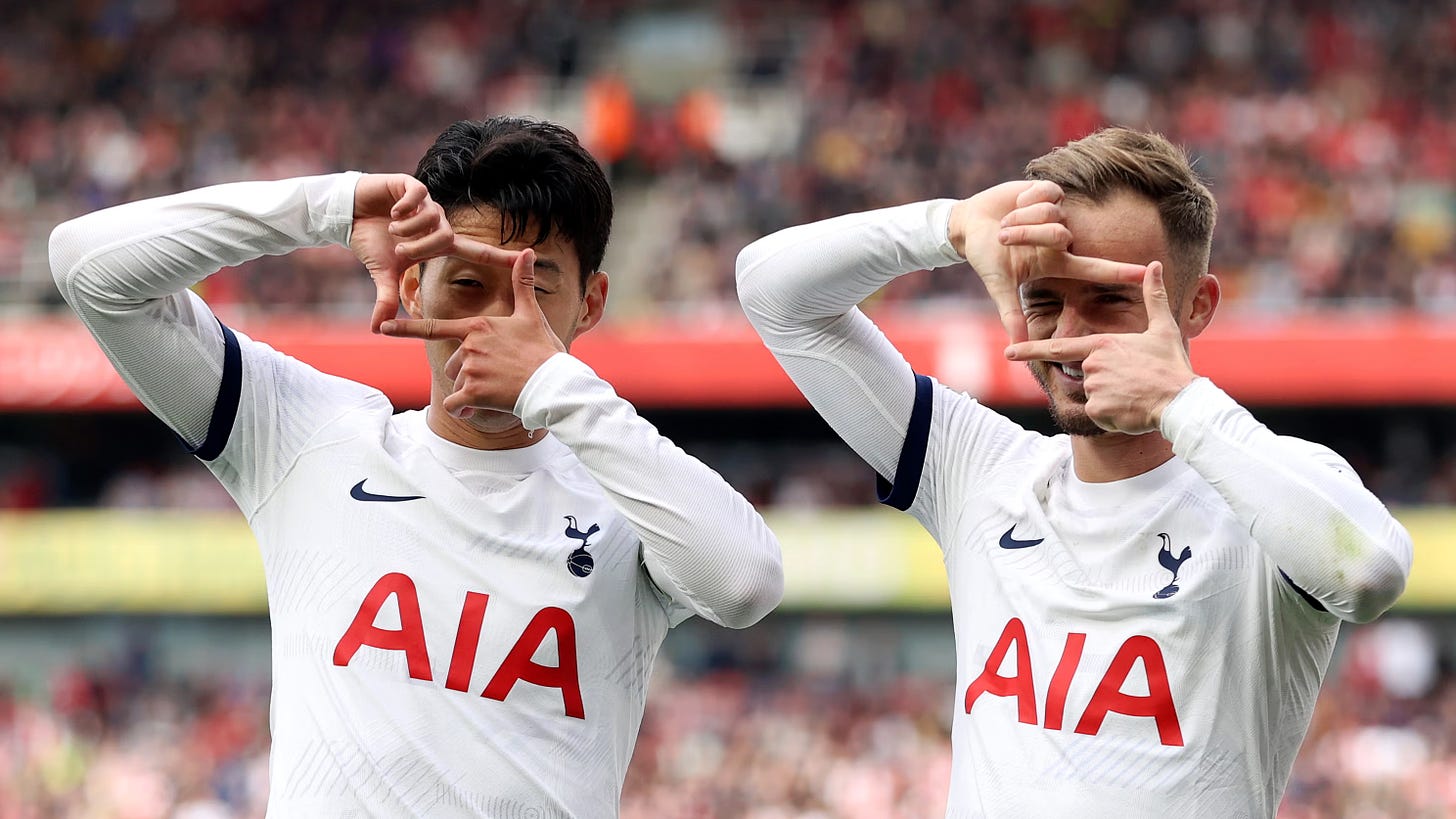
Loved this piece, keep them coming!